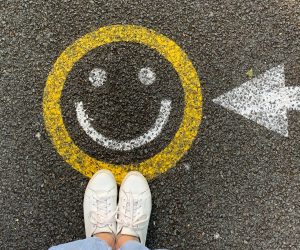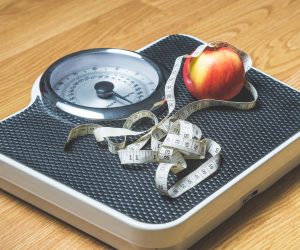
How the Fungi in Your Gut Can Affect Your Mental Health
Dr. Caroline Leaf – We know that our gut affects our mental health, but did you know that the fungi in our gut is especially important when it comes to our mental and physical wellbeing? In this week’s blog and podcast, I discuss how to identify fungal issues in the gut, how gut fungi can affect our mood and mental health, and simple changes we can all make to heal the gut microbiome with Dr. Mahmoud Ghannoum.
Dr. Mahmoud Ghannoum is one of the world’s leading microbiome researchers and the scientist who named the mycobiome, our body’s fungal community. He lectures at many institutions globally, including the National Institutes of Health, on the microbiome and his breakthrough research on probiotics. He’s published over 400 papers on his research and has been cited over 20,000 times by other scientists!
A large part of his research has focused on the close relationship between the fungi and bacteria in our gut. Fungi can be beneficial to our health; for instance, it helps us break down food and make the most of our nutrients. However, if our gut bacteria are killed off, which happens when we take antibiotics for example, our microbiome is damaged, which, in turn, allows gut fungi like candida to grow, causing an imbalance in the mycobiome that affects our digestion (through the growth of digestive plaque and weakened cell lining) and our general mental and physical wellbeing.
Our gut is actually like a diverse city: there are many things living in our tummies and interacting as a community, including viruses, parasites, fungi and bacteria. This is why it is so important that we take a big picture approach to gut health. When we only focus on the gut microbiome and bacteria, we are only looking at half the picture!
This big picture is especially important when it comes to our mental health. We have all heard of the gut-brain connection, but did you know this connection goes both ways? For example, if you are in toxic stress, increased cortisol levels can cause gastro-intestinal disturbance and affect the gut bacteria and fungi levels. On the other hand, an imbalanced gut microbiome and mycobiome can affect serotonin and dopamine levels in the brain, which, in turn, can affect our mood and mental health, as I discussed in a recent blog and my podcast (episodes #90, #94, #106, #117, #131). Emerging evidence even suggests that our gut fungi levels are related to certain neurological disorders like autism!
The two-way communication between the gut and the brain is affected by our the bacteria and fungi in our gut, which is why we need to focus on a healthy diet and a healthy lifestyle, as Dr. Ghannoum explains in his new book Total Gut Balance. We have the power to transform our health by making simple changes to what we eat and how we live, based on research and backed by science:
- Eating foods that kill the digestive plaque in our stomach, such as apple cider vinegar (Dr. Ghannoum recommends 1 tablespoon a day), garlic and coconut oil.
- Eating a balanced, whole food diet that is diverse, flexible, rich in nutrients and good fats like avocado, and low in sugar, which helps balance the microbiome and mycobiome. Refined sugars and carbohydrates feed bad bacteria in the stomach, and should be eaten in limited amounts or eliminated entirely. A lack of nutrients also affect the gut balance, so we should always make sure we are eating lots of vitamin-rich foods like vegetables and fruit.
- Avoiding processed and refined foods, which increase our risk for all sorts of health problems that affect the gut, including obesity. For more on this see my book and online program, Think and Eat Yourself Smart.
- Eating a diet rich in fiber and resistant starches like sweet potato, which help heal the gut.
- Eating cruciferous vegetables like broccoli and cauliflower. These veggies are anti-inflammatory, rich in antioxidants and help boost the immune system (which we all need right now as we deal with the current pandemic!). If you battle eating these veggies, start slow! As Dr. Ghannoum notes, when it comes to making changes in our diet, moderation is key. Take it easy, start eating these foods in small amounts over time, and listen to your body!
- Taking prebiotics and probiotics. Probiotics are good bacteria that help aid digestion in large intestine. They should be able to survive stomach acid, and are best taken after you eat in the morning or before going to bed, when stomach acidity is lower. Prebiotics are fibers that feed the good bacteria in our gut, and can be taken with meals when it suits your schedule.
- Managing your mind. Last but definitely not least, we need to manage our mind, which plays a massive role in our gut health! Toxic stress and chaotic, uncontrolled thinking both directly and indirectly impact the balance in our gut (as discussed above), so we should take the time to control our thinking through practices like yoga, meditation and mindfulness. My SWITCH is a great tool for helping you learn how to manage your mind, deal with the root of your stress and anxiety, and overcome negative thought patterns and behaviors that impact gut health through the mental process of reconceptualization. It is now on sale less 50% for a 3-month subscription!
I also recommend taking a lot of “thinker moments” throughout the day, where you switch off to the external and just let your mind wander and daydream. These moments give your brain a rest and allow it to reboot and heal, which increases your clarity of mind and ability to problem-solve when faced with a tough situation. So, be intentional about creating “thinker” breaks throughout your day by taking a few moments every day, or when you are feeling stressed out! For more information on thinker moments and how to make them a part of your daily routine, see my book, Think, Learn, Succeed.
If you feel like you may have an imbalanced gut, or are battling with gastro-intestinal issues like bloating, gas and diarrhea, you can take Dr. Ghannoum’s excellent gut report test, which can help you get your gut health back on track! There is also an in-depth questionnaire in Dr. Ghannoum book Total Gut Balance, plus a plan to restore your whole gut balance with helpful tips and delicious recipes. The great news is that you can start healing the mycobiome and feeling better in just 24 hours!
To read the original article click here.
For more articles from Dr. Leaf click here.






